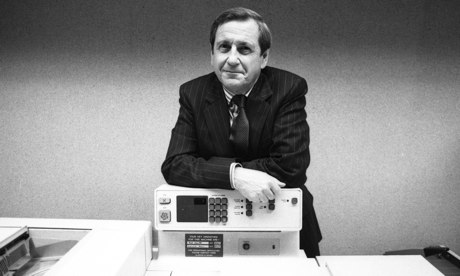
Respected on the international business scene for more than 30 years, Sir Derek Hornby, who has died aged 83, was an executive rather than an entrepreneur, a "big-company man" able to navigate the often treacherous waters of multinational corporations with a ready smile and a warm handshake. He moved with equal ease within organisations such as the British Overseas Trade Board, the British Institute of Management and the European Council of Management. A safe pair of hands, a builder of bridges, an oiler of the wheels, he believed big business could and should provide benefits for society as a whole.
Though he did not particularly seek widespread recognition, he was thrust more into the public limelight when he agreed to become chairman of London and Continental Railways (LCR) in 1994. The company was set up to bid for the franchise to operate the Eurostar passenger rail service through the Channel tunnel and to build the 67-mile high-speed link between London and the tunnel entrance.
Hornby recognised that publicity would be a crucial element during the campaign to win the bid, and ordered a high-profile public relations campaign to be mounted to establish LCR as the natural party to take on the difficult engineering and financial challenge of building the line through the suburbs of London and the commuter dormitories of Essex and Kent.
He would happily agree to front photo opportunities and interviews dreamed up by his advisers, trusting their judgment. In the event, LCR won the bid, but it could be argued that this was more to do with its financial offering than publicity. Unfortunately, however, Eurostar revenues failed to meet forecasts, and the service that had been expected to produce the cash to fund the building of the high-speed line was losing money fast.
Airlines had responded to the threat to their profitable London-Paris services by cutting prices, and a fire in the tunnel in 1996 further dented passenger confidence. Instead of the 15 million expected passengers, numbers were nearer 3 million.
Plans to float LCR on the London Stock Exchange in 1997 had to be abandoned. With the construction timetable now pressing, in 1998 Hornby approached the government for help. Direct government funding of the link was prohibited, and a solution was found by taking the Eurostar stake into public ownership. A year later, being totally dependent on government guarantees for its debt, LCR was nationalised.
The rail link and the renovation of St Pancras station were completed successfully. By that time, however, Hornby and his team had resigned. Thereafter he became less involved with business, though his directorship of the advertising agency Cogent Elliott continued until 2011.
Born in Bournemouth, Derek was the eldest of five children. His father was killed on second world war service with the Royal Artillery in 1942. Thanks to a government scheme of the time, under which promising students from humble beginnings were sent to private schools, Derek went to Canford school, Dorset.
He undertook his national service in Aden, went to work for Mobil Oil, and at the age of 23 married his first wife, Margaret (nee Withers); she was a secretary and he was an office boy. They had a son, Nicholas, and a daughter, Gillian.
This marriage did not last, however. Hornby was working his way up the corporate ladder: a senior position at Mars was followed by a stint at Texas Instruments and, in 1973, he was made director of international operations of Xerox Corporation, a move that took him to the US.
By then he had left his wife and children to move abroad with a new partner. The children had remained with their mother and it was in the wake of the breakup that Hornby began taking the 11-year-old Nicholas to football. This seeded in the boy a self-confessed addiction to Arsenal and the book that made him famous, Fever Pitch. Nick was not the only literary figure in the family: his sister Gill published her debut novel in 2013, and is married to the author Robert Harris.
In 1971 Hornby married Sonia (nee Beesley), with whom he had a further son, Jonathan, and daughter, Victoria. Sonia and his children survive him. He was knighted in 1990, and liked to see himself as the head of a tribe with a total of 14 grandchildren to entertain at the family home in Idlicote, Warwickshire.
• Derek Peter Hornby, businessman, born 10 January 1930; died 16 December 2013

